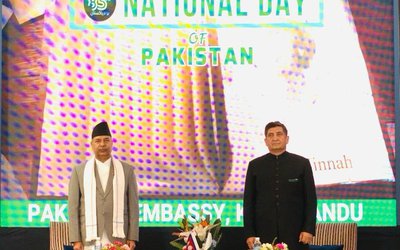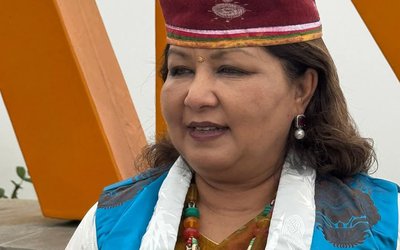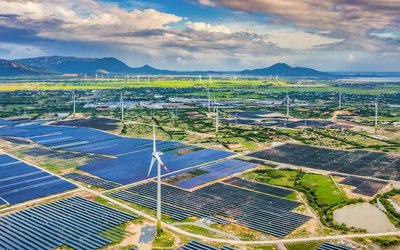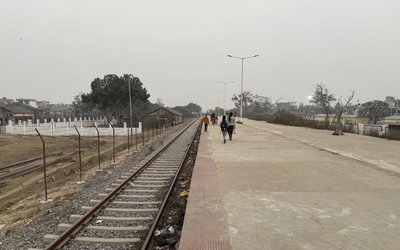
We are living in a society
where anything that produces benefits is considered useful. The drama we live
in is that all areas of our lives are contaminated by the idea of profit and
more profit. Education has become a lucrative business. The courses that the
universities have created is nothing more than an invention to get more money
from the students. We no longer educate the new generation in the love for the
common good or for a genuine interest. Knowledge is no longer perceived. We
educate them for love of money and personal benefit. The professors have become
managers and universities act increasingly like big businesses. They speak a
language contaminated by the economic logic. Students study for credit and to
pay off debts. This language is not neutral; it shows that the language of
profit dominates all layers of life.
As far as I am concerned, a little less hypocrisy would be good for those of us who have always been privileged, educated in private schools and who continue to educate our children in the best schools of the country, while we produce and multiply second class, average or even sub-standard citizens in our public education system.
The quality of education is poor, if not shocking. The change for an equitable society must come from education. Knowledge is the result of both education and experience. Basic education is necessary and free. This is stated in section 4 of article 27 of the Nepali Constitution. Of course, but free? If so, how many Nepali families can afford the cost of good education for their children? The answer is, very few. Education is a business, students are consumers and so called educationists are managers in our society.
Low quality of education can be characterized as follows: Knowledge is repeated, information is transmitted, knowledge is an obligation and teacher a dictator. The characteristics of a passive student, evaluation is repressed, teaching only those who know, closed space (face-to-face), training a product and chalk-board-language technology. This is exactly what happens in Nepalese education system.
Politicization of the educational system with each appointment of minister and their subordinate educationalist is a serious issue. Students, teachers, families, and society are victims of a poorly designed, obsolete, variable educational system, with shameful results. High rates of school/ college failure and youth unemployment will lead young people to leave this country for better opportunity. The level of education in our country is constantly deteriorating due to lack of transparency. The poor education system is a result of our political system. The university education is under the control of brokers. We can buy good results. Corruption in education-related government agencies have made exams and degrees to be sold on a large scale in Nepal. Increase in the sale of fake university degrees through the country is because there is more supply as there is more demand.
About 3 out of 10 schools have no library. Some 9 out of 10 do not have labs. Nepalese educational system is like a bus with a damaged engine that is on the way to the uphill bumpy road and suddenly a group of people advise that the solution is to go faster by training the driver. The sale of plagiarized textbooks for school children is a very lucrative business in Nepal.
Education in Nepal is obsolete and evaluation systems that qualify teachers and students are inadequate to implement measures that regulate the teaching-learning system of students. All this causes a low academic level in the students, warn specialists, organizations, and officials.
Structural reform for Nepal to move towards greater economic growth can be done by providing a good education. If we take a look at history, no country has managed to develop without a well-educated population. Nepal stands out in terms of its poor performance in education, in addition to other determinants of progress in development, such as infrastructure and the rule of law. We have 25 % business graduates and 24 % social work graduates. Graduating rates of doctor, engineer and health worker are very low. Private education is considered better than public education. It is hard to find someone who really believes that our public schools and colleges can perform as well as private schools and colleges.
We need to have more teachers and reduce the student-teacher ratio. While controls and demands are immovable for serious education centers, laxity is the norm for these 'garage college and school', usually operated by closed families and clan.
Privatization of education systems is a risk to the majority of the population because it generates inequality and poverty. The business is not so much in the private networks of centers, a business not despicable, but in getting the families to invest more to have a better education, and in the management of public money by private entities.
The ignorance, arrogance, abuse, arbitrariness, and illegality with which the Ministry of Education has been administered by "authorities" over the last 20 years is resulting in erratic policies regarding the definition of educational programs and cosmetic measures to lie to the population.
The market does not understand morals or ethics, only profit, and profit. Quality education is only available to the most affluent pockets and this creates inequality, and exclusion. It weakens democracy, fostering a society that is disconnected, unsupportive and morally broken.
We have entered the learning society, which has given rise to a global education industry. The educational market is estimated at 4.3 trillion dollars. Education is big business because it is the most sustainable resource in the world. A business of about 6 trillion dollars of which large companies have only come to capitalize 0.1%. The business of education is a goal shared by large corporations and stimulated by the neoliberal policies of conservative governments.
The crisis in education is a crisis of legitimacy of culture when it tends to be reduced to the imperatives of social utility and economic profitability. Public education and its reforms cannot be the "whims" of governments on duty. Public education is not a business, it is not touched, it is not sold, it is a right and it is for everyone. The question I ask myself is when will citizens cease to defend our rights and start to enjoy them?
Education is a tool for making citizenship free and autonomous and only a citizen with critical capacity can build a better society. We often hear education as supposedly is the key to the success of an individual and the development of our country. Education is the government's duty to give its citizens. The gaps in our public education require urgent treatment since it is the sector that must ensure that the right to education is a reality and not a gift.
Education should not be business-it should be a right. We live in the era of the knowledge economy. There is no doubt that the greatest asset with which it can uplift a nation is education, which is also the driving force for prosperity. It is not possible to deny that the results shown by the various educational evaluation bodies, both national and international, have evidenced a failure of the national education system, which has failed to respond to the needs of the population to develop human potential and skills and to face the challenges of the new reality that we are living in.

Deepak Raj Joshi
(The author is a lecturer and IT consultant. He also writes fiction under the name of Kapeed Joshi. He can be reached by email at info@dipakjoshi.com.np.)
- Criminal Governance & Neopatrimonialism
- Jul 29, 2024
- Participatory Democracy
- Dec 07, 2023
- Rise Of Populism Boon Or A Bane
- Aug 13, 2023
- The Collapse Of Confidence And The Rise Of RSP
- May 17, 2023
- Lottocracy
- Apr 30, 2023















